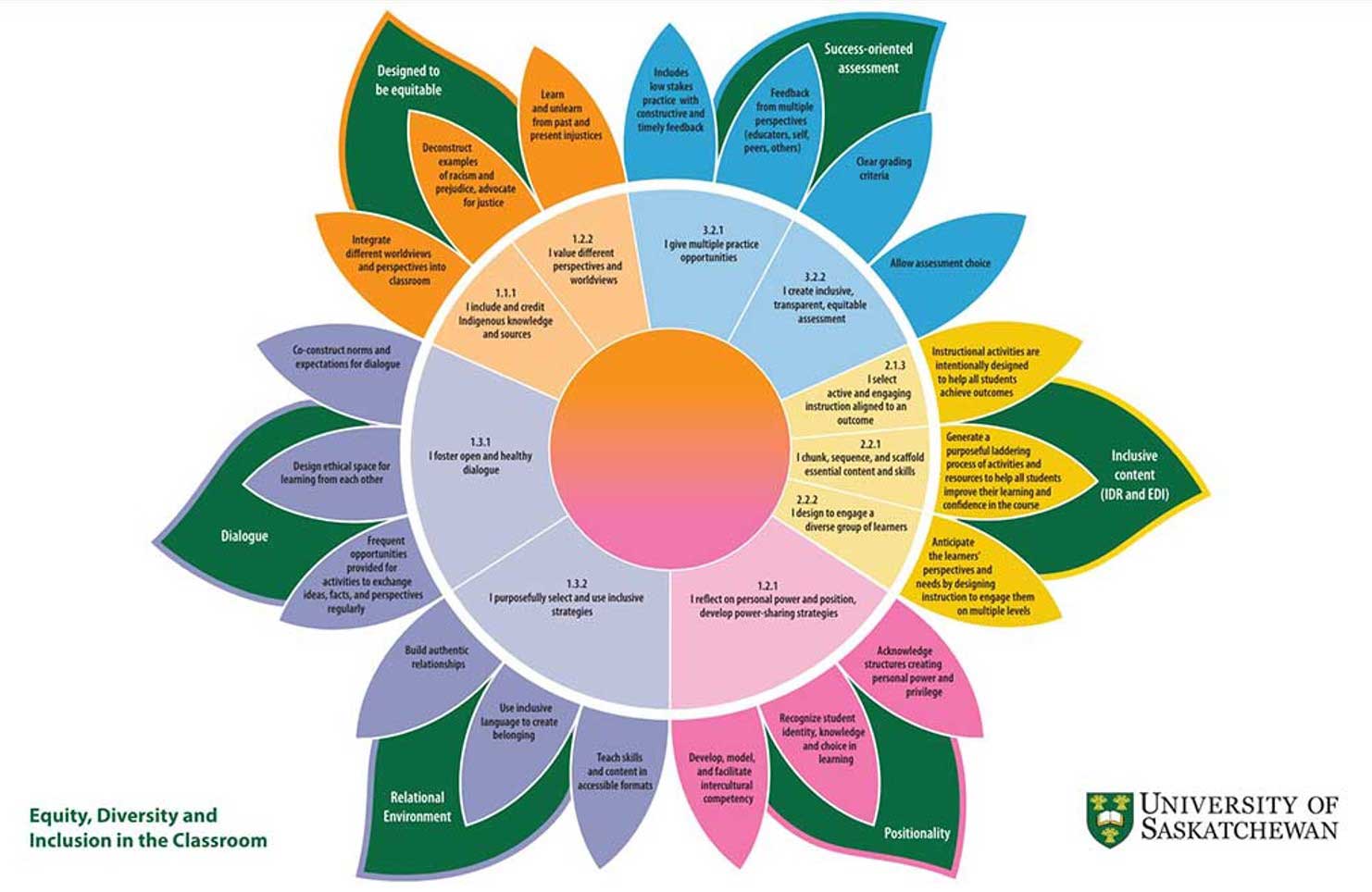Authentic relationships built on trust and reciprocity between educator and learner are fundamental to a successful learning experience. Approaching this educational partnership with a mindset of "the educator becomes a learner and learner becomes an educator" will support respectful inclusion of multiple worldviews and foster understanding of the shared responsibility in learning. Moving forward from a position of humility will create opportunity for thoughtful reflection and a commitment to action that supports all learners.
Considerations for building relationships
Nurturing successful relationships
Students who nurture successful relationships describe who they are and can embrace diversity of interpersonal strengths and weaknesses to support positive outcomes with others. They are accountable for their actions, manage conflict, successfully prioritize, and negotiate for successful results.
Competency examples in the classroom include:
- reflective activities,
- group projects,
- role-playing exercises,
- case-studies and simulations,
- community partnerships, and
- portfolio development.
Challenging conversations in the classroom
Respectful dialogues are learning opportunities that can teach everyone involved. The rewards exceed the risks if we prepare for the safety of all involved, including the educator. Conversation is a personal act. In a professional context, this can be difficult and rewarding. The educator is personally invested in the experience of critical conversations - not necessarily on one side or the other of the topic. A fundamental component is to convey the benefits of these discussions. Learners need to be able to turn to educators for support. They are developing their abilities to explore different, sometimes opposing, opinions and beliefs. Lack of experience requires a safe and well-structured educational experience.
Culturally responsive teaching
Individuals who feel like they are part of the collective, and are valued for their uniqueness within it, have more impact in group work, collective learning, and in the workplace. Learners (and educators) who cultivate a sense of belonging can avoid detrimental emotional and cognitive repercussions1 in their educational pursuits. Educators who plan for inclusive and culturally responsive teaching are putting in place systems that will help them respond to differences in the classroom. Culturally responsive teaching (not to be confused with critical race theory) helps educators consider the competencies needed to support all learners.
Equity, Diversity, and Inclusion (EDI)

Cultivating equity and inclusion fosters student belonging, especially for historically excluded groups, and enhances their university experience. Acknowledging social injustices reduces stereotype threat, helps students to feel seen and heard, and promotes better academic focus and performance. Valuing diversity allows us as educators to adapt teaching methods and enhance the learning experience for all students. It is our responsibility to be educators and learners in the EDI conversation.
Get support
For support or a consultation on this topic, reach out to the team at the Gwenna Moss Centre for Teaching and Learning.

